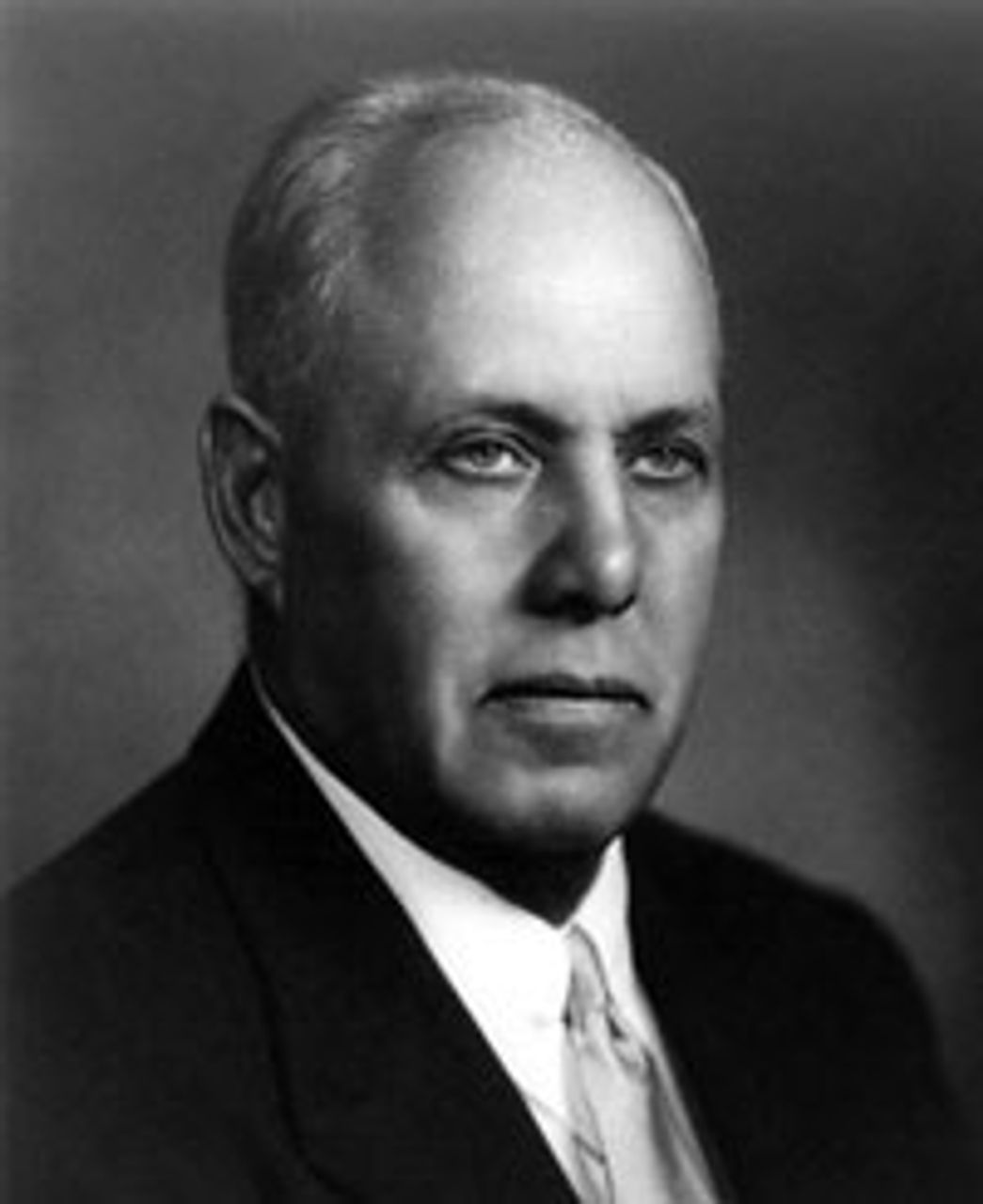This Week in History provides brief synopses of important historical events whose anniversaries fall this week.
25 Years Ago | 50 Years Ago | 75 Years Ago | 100 Years Ago
25 years ago: US Supreme Court rules in favor of prison without bail
 William H. Rehnquist
William H. RehnquistOn Tuesday, May 26, 1987, the US Supreme ruled 6-3 to allow a criminal defendant to be jailed without bail if the prosecutor and the judge agreed that the suspect was a threat to the safety “of any other person and the community.” The case, called United States v. Salerno, involved a reputed member of the Mafia, “Fat Tony” Salerno, but Chief Just William Rehnquist made it clear that the real purpose of upholding the Bail Reform Act of 1984 was to use against opponents of future US war plans.
Rehnquist wrote, “We have repeatedly held that the Government’s regulatory interest in community safety can, in appropriate circumstances, outweigh an individual’s liberty interest. For example, in times of war or insurrection, when society’s interest is at its peak, the Government may detain individuals whom the Government believes to be dangerous.”
In a sharply dissenting opinion, Associate Justice Thurgood Marshall, one of the remaining liberals from the Warren Court, wrote that the 1984 law which was ruled unconstitutional by a US Appeals Court, was “consistent with the usages of tyranny, and the excesses of what bitter experience teaches us to call the police state.” He said the majority ruling “disregards basic principles of justice established centuries ago and enshrined beyond the reach of governmental interference in the Bill of Rights.”
He continued: “The very pith and purpose of this statute is an abhorrent limitation of the presumption of innocence... Throughout the world today there are men, women and children interned indefinitely, awaiting trials which may never come or may be a mockery of the word, because their government believes them to be ‘dangerous.’”
Rehnquist dismissed the due process clause of the Fifth Amendment of the Constitution, which provides that no person shall “be deprived of life, liberty or property, without due process of law,” by asserting that pre-trial detention was not a “punishment,” but a “regulatory” measure, an assertion which Marshall pointed out was merely a formula to deny any constitutionally guaranteed right.
A second ruling of the Supreme Court decided the same day, Hilton v. Braunskill, held that an individual could be held without bail even after his conviction is overturned on appeal.
50 years ago: AFL-CIO announces drive for 35-hour workweek
 George Meany
George MeanyOn May 23, 1962, AFL-CIO President George Meany announced that the US trade union federation would launch a drive for a national 35-hour workweek as the only means of confronting what was commonly called the nation’s “unemployment crisis.” The annualized unemployment rate for 1962 was 5.5 percent.
A day earlier Democratic President John F. Kennedy staked out the opposite position. Asked at a press conference about a call from the Amalgamated Clothing Workers of America (ACW) for the 35-hour week, Kennedy responded, “I believe we should have a 40-hour week. I’ve said that from the beginning.”
Meany, who delivered his remarks to the 31st annual convention of the International Ladies Garment Workers Union (ILGWU), said he would bring the proposed measure before the AFL-CIO Executive Council in July. Meany pointed to the effects of increased automation and called attention to the fact that after each post-World War II decade the base of the unemployment rate increased.
The AFL-CIO head went out of his way to insist that organized labor was not questioning the prerogatives of capital. The AFL-CIO was “for profits for business,” Meany said, because “we know very well that this is part of the system.” Meany also insisted that the AFL-CIO was “not dying of dry rot. It is not suffering from hardening of the arteries. It is very much awake and very much alive.”
Despite Meany’s protestations, however, the putrefaction of the American trade unions was well advanced. Achieving a 35-hour work week—entirely justified from the standpoint of the interests of the working class—would have required a serious struggle against American big business. Given its adamant anti-communism and support for capitalism, the AFL-CIO predictably wound up its campaign for a shorter work week having accomplished nothing.
75 years ago: Spanish child refugees arrive in Britain
 Refugees at Stoneham camp
Refugees at Stoneham campOn May 23, 1937, the decrepit ocean liner the SS Habana docked at Southampton in southern England, carrying 3,681 mainly Basque child refugees fleeing the barbarity of Spanish fascist General Francisco Franco. The children, accompanied by approximately one hundred female Spanish teachers, embarked from Santurce, Bilbao, on May 21 and dropped anchor at Fawley, on the entrance to Southampton Water, on the evening of the next day. The following morning, a Sunday, they docked at Southampton.
During the stormy three-day crossing, those evacuated were laid head to toe throughout the entirety of the ship. The Habana was designed to carry just eight hundred passengers. At the time, the evacuados comprised the largest single influx of refugees ever to arrive on British shores. The child refugees were aged between five and fifteen.
The British government had unofficially acquiesced to Franco’s illegal blockade and mining of Spanish ports held by Republican forces. Officially the British government strongly advised against any travel to Spain. But since the destruction of the Basque town of Guernica in April by German and Italian bombers, anger in the British working class mounted. As a token, the government agreed to accept Spanish refugees from the Basque region. The governments of France, Belgium and the Soviet Union had already accepted thousands of civilians fleeing the fighting, especially from the ongoing siege of the Basque port of Bilbao.
The British government refused to make any financial contribution to help the children. All costs would be incurred by those who sought to offer the children shelter, and it would be government policy to send the children back to Spanish shores at the first possible opportunity. Shortly after their arrival, 20 Spanish children deemed by the British government to be “troublemakers,” most likely the most vociferous in their Republican support, were sent to France.
100 years ago: Reichstag votes to expand German navy
 Arthur Balfour
Arthur BalfourOn May 21, 1912, the German Reichstag, or parliament, passed an amendment that called for an expansion of the size of the German navy. The amendment mandated funds for three more battleships, and allocated funds for the creation of additional submarines and destroyers. The move took place in the context of tense Anglo-German relations and an arms race that ultimately led to World War I.
Earlier in January, the British government had issued a memorandum to the Kaiser demanding no further expansion of the German army, a reduction of the naval program, and the acceptance of British naval superiority in return for certain imperial concessions, particularly in Africa. This initiated a series of negotiations, with Britain launching a diplomatic mission, the “Haldane Mission,” to Germany in February to discuss Berlin’s proposed naval amendment. While the mission resulted in some concessions regarding the rate of naval construction, it was largely a failure. The day before the Haldane mission arrived in Germany, a new naval construction bill had been put before the Reichstag.
The expansion of Germany’s naval power elicited concern from Britain’s political establishment, which regarded German imperialism as the principal threat to the world position of British imperialism. Arthur Balfour, a prominent conservative politician and former prime minister, expressed these concerns publicly in the London Times. He wrote, “The danger lies ... in the co-existence of that marvelous instrument of war, the German army and navy, with the assiduous ... advocacy of a policy that seems impossible to reconcile with the peace of the world, or the rights of nations. For those who accept this policy, German development means German expansion.”
